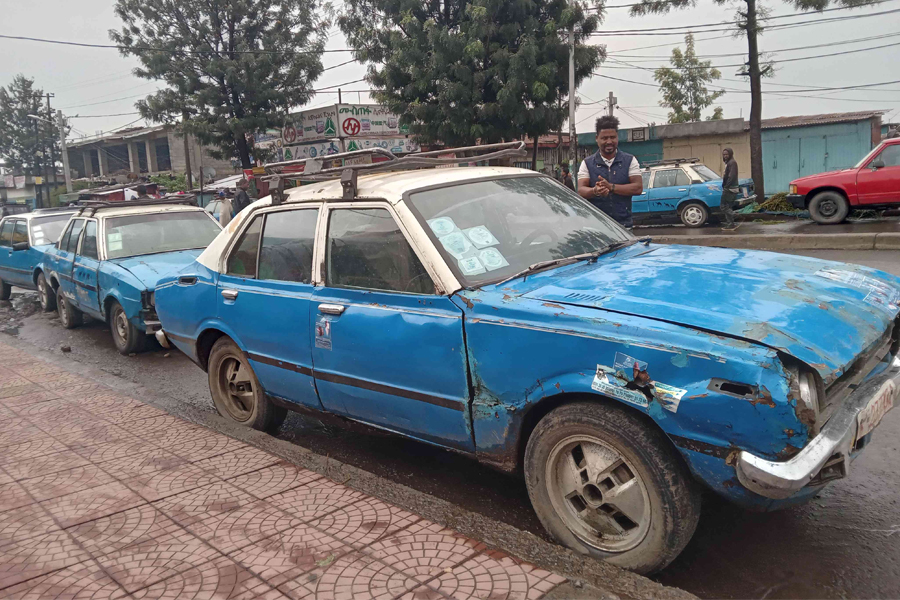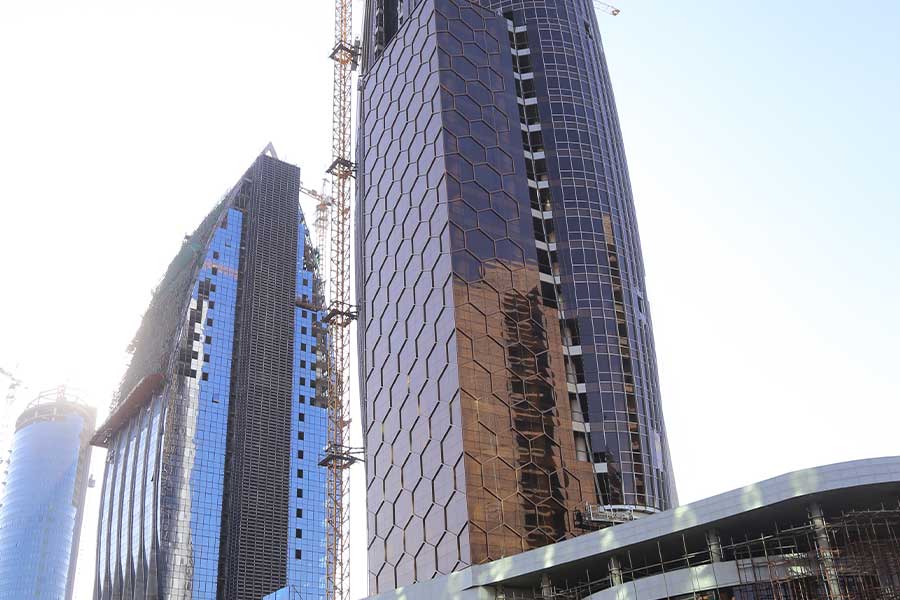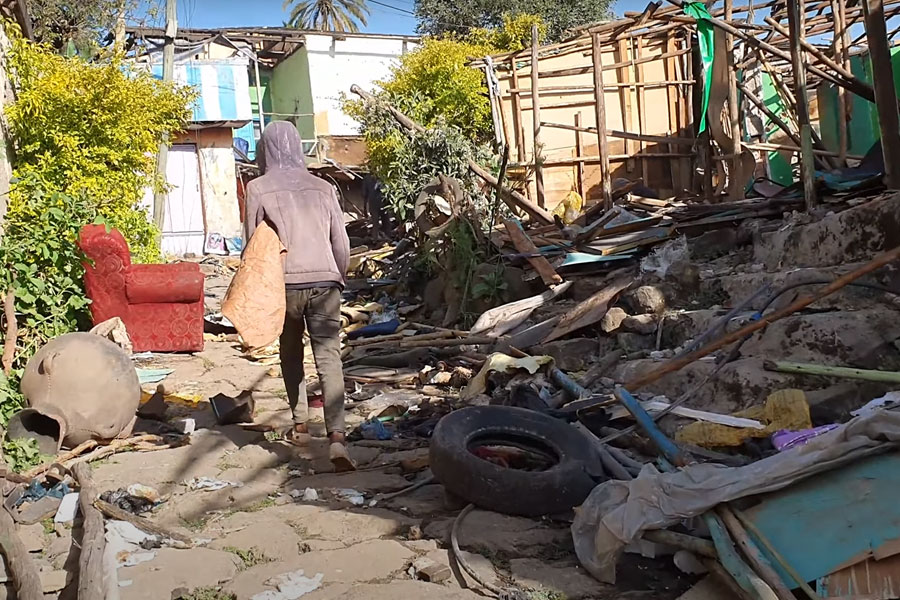
Fortune News | Jul 22,2023
Nov 5 , 2022
By BERSABEH GEBRE ( FORTUNE STAFF WRITER )
City authorities requested district offices to submit reports aiming to legalise homes occupied by low-income residents and fight against what they see as illicit transactions through third parties.
Instructed two weeks ago, the district offices have a month to register and prepare blueprints for properties under wereda administrations, a.k.a "Kebele houses."
The Addis Abeba City Land Management & Development Bureau decided to prevent illegal transfers of Kebele houses, incorporating residents in the land registration system. Officials at the Bureau blocked transactions through designates and related services of leased lands for the last two months, citing widespread fraudulent activities. The decision was made after the officials found forged documents and controversies in title deeds while registering the properties owned by farmers in six districts on the outskirts.
"We started registering and issuing blueprints for farmers," said Tesfaye Chane, head of land-holding affairs of the Land Management & Development Bureau.
The Bureau also provides blueprints to unregistered residents relocated to give way to riverside projects. But the process has been dragging on. The Bureau received close to 60 cases of complaints from the Yeka District office where Chaka projects of building a new place are afoot.
"The inquiry is ongoing," Tesfaye told Fortune. "The projects should not be delayed for this reason."
Properties under the city's ownership rented by kebele administrations emerged after the military government nationalised private properties in the early 1970s. Tens of thousands of houses were transferred to tenants, with rental fees dropping by half overnight. The city's Housing Corporation was tasked to identify the documents for these properties and present them to the Bureau. Over 11,000 houses are waiting to be registered and get blueprints.
The blueprints will be held by the weredas, issued under the city government with their physical address incorporated into them.
Abraham Woldemeskel, who served in the Gulele District for many years, believes that the blueprints will help to collect accurate information about an area. However, he doubts if they help push back illegal transactions as the documents do not specify owners' information.
"The government should look into another option," he said.
A report by the UN habitat released last year shows informal settlements account for 40pc of the total administrative area of Addis Abeba and 56pc of the developed area.
Districts in the capital, such as Addis Ketema, Arada, Lideta, and Kirkos, are at the top of unauthorised plots. Over 80pc of the land in the Addis Ketema District does not have blueprints, with Bole District leading with 81pc registration record.
Officials of the Addis Ketema Land Management & Development Bureau have begun executing the order after receiving a letter from the city administration, planning to issue blueprints to 8,000 houses under the Kebele administrations. Sefina Sultan, head of the land-holding affairs sector, the Bureau is working to identify how many houses have blueprints.
Those in the Kirkos District have yet to start implementing, with 5,000 kebele houses to acquire the blueprints.
"We're waiting for further explanation on how to proceed," said Jemal Ibrahim, head of the Bureau.
However, players in the construction industry complain that the ban on leased land transactions is affecting businesses as projects have been frozen, and the real estate business is tumbling. Federal government authorities attempt to attract prospective investors to develop idle plots for years under state institutions. The Land Bank & Development Corporation (LBDC), led by Lensa Mekonnen, is expecting to organise an event in the coming month, luring foreign investment they estimate will reach two billion dollars.
Million Kibert, founder and CEO at BDO Consulting, appreciated the government's commitment to clarify the complications with "Kebele houses". Yet, he said that the system discourages investors and businesses from seeking simple procedures to engage in projects, warning that the decision could exacerbate the corruption between property sellers, developers and home buyers.
PUBLISHED ON
Nov 05,2022 [ VOL
23 , NO
1175]

Fortune News | Jul 22,2023

Radar | Jul 01,2023

Fortune News | Nov 09,2019

Radar | Aug 27,2022

Radar | Apr 30,2024

Radar | Oct 23,2021

Agenda | Mar 23,2024

Radar | Aug 14,2021

Fortune News | Sep 28,2019

Fortune News | Jul 02,2022

Dec 22 , 2024 . By TIZITA SHEWAFERAW
Charged with transforming colossal state-owned enterprises into modern and competitiv...

Aug 18 , 2024 . By AKSAH ITALO
Although predictable Yonas Zerihun's job in the ride-hailing service is not immune to...

Jul 28 , 2024 . By TIZITA SHEWAFERAW
Unhabitual, perhaps too many, Samuel Gebreyohannes, 38, used to occasionally enjoy a couple of beers at breakfast. However, he recently swit...

Jul 13 , 2024 . By AKSAH ITALO
Investors who rely on tractors, trucks, and field vehicles for commuting, transporting commodities, and f...

Jul 5 , 2025
Six years ago, Ethiopia was the darling of international liberal commentators. A year...

Jun 28 , 2025
Meseret Damtie, the assertive auditor general, has never been shy about naming names...

Jun 21 , 2025
A well-worn adage says, “Budget is not destiny, but it is direction.” Examining t...

Jun 14 , 2025
Yet again, the Horn of Africa is bracing for trouble. A region already frayed by wars...